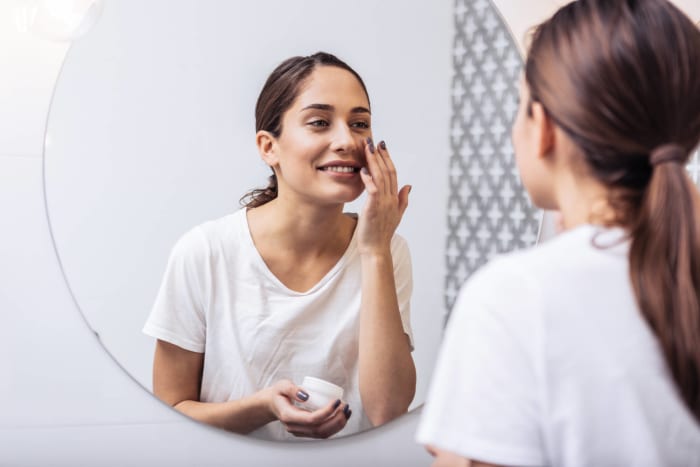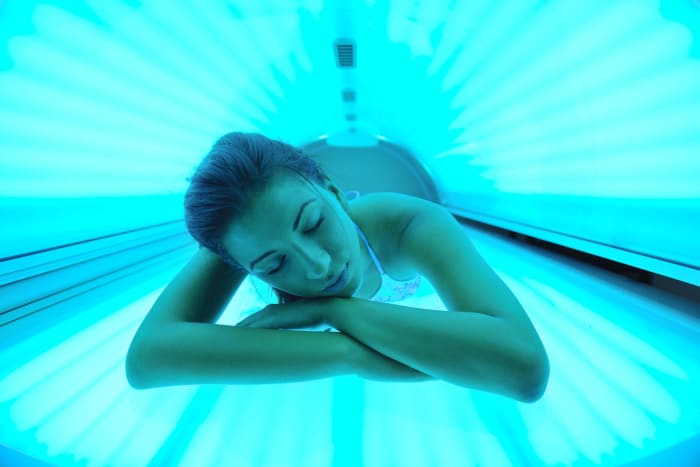- Home
- Quizzes
- My Quiz Activity
- Newsletters
- Sports Betting
- MY FAVORITES
- Add Sports/Teams
- SPORTS
-
NFL
- NFL Home
- Arizona Cardinals
- Atlanta Falcons
- Baltimore Ravens
- Buffalo Bills
- Carolina Panthers
- Chicago Bears
- Cincinnati Bengals
- Cleveland Browns
- Dallas Cowboys
- Denver Broncos
- Detroit Lions
- Green Bay Packers
- Houston Texans
- Indianapolis Colts
- Jacksonville Jaguars
- Kansas City Chiefs
- Las Vegas Raiders
- Los Angeles Chargers
- Los Angeles Rams
- Miami Dolphins
- Minnesota Vikings
- New England Patriots
- New Orleans Saints
- New York Jets
- New York Giants
- Philadelphia Eagles
- Pittsburgh Steelers
- San Francisco 49ers
- Seattle Seahawks
- Tampa Bay Buccaneers
- Tennessee Titans
- Washington Commanders
-
MLB
- MLB Home
- Arizona Diamondbacks
- Atlanta Braves
- Baltimore Orioles
- Boston Red Sox
- Chicago White Sox
- Chicago Cubs
- Cincinnati Reds
- Cleveland Guardians
- Colorado Rockies
- Detroit Tigers
- Houston Astros
- Kansas City Royals
- Los Angeles Angels
- Los Angeles Dodgers
- Miami Marlins
- Milwaukee Brewers
- Minnesota Twins
- New York Yankees
- New York Mets
- Oakland Athletics
- Philadelphia Phillies
- Pittsburgh Pirates
- San Diego Padres
- San Francisco Giants
- Seattle Mariners
- St. Louis Cardinals
- Tampa Bay Rays
- Texas Rangers
- Toronto Blue Jays
- Washington Nationals
-
NBA
- NBA Home
- Atlanta Hawks
- Boston Celtics
- Brooklyn Nets
- Charlotte Hornets
- Chicago Bulls
- Cleveland Cavaliers
- Dallas Mavericks
- Denver Nuggets
- Detroit Pistons
- Golden State Warriors
- Houston Rockets
- Indiana Pacers
- Los Angeles Clippers
- Los Angeles Lakers
- Memphis Grizzlies
- Miami Heat
- Milwaukee Bucks
- Minnesota Timberwolves
- New Orleans Pelicans
- New York Knicks
- Oklahoma City Thunder
- Orlando Magic
- Philadelphia 76ers
- Phoenix Suns
- Portland Trail Blazers
- Sacramento Kings
- San Antonio Spurs
- Toronto Raptors
- Utah Jazz
- Washington Wizards
-
NHL
- NHL Home
- Anaheim Ducks
- Arizona Coyotes
- Boston Bruins
- Buffalo Sabres
- Calgary Flames
- Carolina Hurricanes
- Chicago Blackhawks
- Colorado Avalanche
- Columbus Blue Jackets
- Dallas Stars
- Detroit Red Wings
- Edmonton Oilers
- Florida Panthers
- Los Angeles Kings
- Minnesota Wild
- Montreal Canadiens
- Nashville Predators
- New Jersey Devils
- New York Islanders
- New York Rangers
- Ottawa Senators
- Philadelphia Flyers
- Pittsburgh Penguins
- San Jose Sharks
- Seattle Kraken
- St. Louis Blues
- Tampa Bay Lightning
- Toronto Maple Leafs
- Vancouver Canucks
- Vegas Golden Knights
- Washington Capitals
- Winnipeg Jets
- NCAAF
- NCAAM
- Boxing
- Entertainment
- Lifestyle
- Golf
- MMA
- Soccer
- Tennis
- Wrestling
- More Sports
- RESOURCES
- My Account
- YB on Facebook
- YB on Twitter
- YB on Flipboard
- Contact Us
- Privacy Policy
- Terms of Service

20 skincare rules everyone should follow
Skincare isn't one-size-fits-all, but these 20 rules should be followed no matter who you are.
Moisturize daily

Moisturizer is a vital step in your skincare routine. If you're using only one product, let it be moisturizer. A moisturizer keeps your skin hydrated, youthful, and glowing. Beyond its aesthetic purposes, it keeps your skin healthy, which is ultimately most important.
Don't sleep in your makeup

You've probably heard this hundreds of times, but if you haven't (or you just need a reminder), don't sleep in your makeup. It clogs your pores, ages it prematurely, and will wreak havoc on your pillowcases. If you're too tired at night to do your full skincare routine, at the very least, remove your makeup.
Drink lots of water

Water is good for your body for countless reasons, including your skin's health. Staying hydrated will improve your skin's look and function and help prevent wrinkles, flakiness, discoloration, and more. You'll have to pee more, but it's a worthwhile trade-off.
Eat healthy

Eating healthy also has many benefits for your body, including better skin. Good skincare starts from within, so make sure you’re fueling with nutritious options that promote healthy skin. Don’t deprive yourself of treats, but work to make sure the bulk of your diet is good for you.
Wear sunscreen daily

No matter who you are or where you live, you need to be applying sunscreen to your face every day. Even if you're curled up inside for days on end in the dead of winter, you're still exposed to rays that can damage your skin. Don't skip the sunscreen.
Get to know your skin type

Everybody has a different skin type, and knowing which type you have will help you choose the best products for you. It's important to know whether you have dry, oily, or combination skin. The better you take care of your skin, the more you'll know about its health, which will help you understand your skin type.
Use appropriate products

Not all skin products are meant for all people. For instance, adolescents can actually harm their skin by using harsh retinoids that aren’t meant for them. Which products are appropriate for you will depend on your age, lifestyle, skin type, and skin goals, and some skincare options won’t be suited for you. If you have questions about specific products, ask a dermatologist.
Don't touch your face

Touching your face is bad for your skin for so many reasons. It clogs pores, promotes acne, and can cause infections. Sure, there are times when you have to touch your face, like when you’re cleansing or applying makeup, but if you’re not actively working with your face, keep your hands down.
Stay away from tanning beds

It's well-known by now that tanning beds are bad for your skin. They're drying, they age your skin prematurely, and, worst of all, they can cause cancer. It's much easier to prevent damage than it is to reverse it, so do yourself a favor and find alternative ways to get that bronzy glow.
Check your skin regularly

To keep your skin as healthy as possible, make sure you're checking in with it regularly. And not just your face, but your entire body. Check on blemishes, moles, discoloration, and more, and have a dermatologist complete a yearly check for places you can’t see well. Many skin issues can be treated, but they need to be known about to be treated.
Monitor the temperature of the water when washing your face

The water temperature you use when washing your face is almost as important as the product you use. If the water is too hot, it can burn your skin and remove the natural oils that keep your skin bouncy and youthful. If you can, use cold water; if not, keep it lukewarm.
Don't over-exfoliate

Exfoliation is important for good skin, but it can be harmful if done too often. You should exfoliate your skin three times a week at the most, and that goes for chemical and physical exfoliants. If an exfoliating product is recommended for daily usage, throw it away.
Don't pick at your blemishes

Picking at your blemishes is so tempting, but it's really bad for your skin. It can actually cause more blemishes to appear nearby, and if you're too aggressive, you can cause long-term damage to your skin. Invest in hydrocolloid patches or talk to a dermatologist about your options if you can't resist.
Be sensitive near your eyes

The skin around your eyes is incredibly sensitive, so you must be, too. Use either your ring fingers or pinkies to apply product around your eyes, as those are the gentlest fingers, and only use products in that area that are meant to be used there.
Stick to a routine

Skincare routines are called routines for a reason. They're meant to be stuck to. For the best results, you need to follow your routine with fidelity. Buying efficacious products is only half the battle. You've got to use them consistently, too.
Adjust your routine with the seasons

Check in with your skin at the beginning of each season to see if anything needs to change. When winter approaches, you may need to switch to a heavier moisturizer to accommodate the dryness. When the weather warms up, you might want to double cleanse at night to get off all the outdoor debris.
Don't overuse products

Exfoliators are not the only products that are tempting to overuse. Oils, retinoids, and cleansers can all be overused, too. Read the directions carefully and listen to your dermatologist and your skin when they tell you to scale back on product usage.
Get a good night's rest

A good night's sleep is as important as any product you use. When we're asleep, our bodies are repairing and regenerating. You can have the best skincare products in the world, but if you don’t sleep well, you might as well have not used a thing.
Use products in the right order

Make sure you're using your products in the right order, too. A basic order is cleanser, moisturizer, and sunscreen, and there's wiggle room for oils, serums, and toners. Read product labels carefully to know where in your skincare you should be using it for the best results.
Use products on your neck

Your neck is an important part of your skin, and as such, it deserves those same products. Not everything needs to be taken on your neck, like products meant to address acne (unless there is acne on your neck), but basics like moisturizer and sunscreen should absolutely be applied there.
Acacia is a South Dakota-based writer with a love of all things pop culture, particularly music, television, and celebrities. Her previous work can be found on Nicki Swift and Mashed. When she's not writing, Acacia is watching television, listening to music, completing a crossword puzzle, or reading.
More must-reads:
- Legendary Broncos DC Joe Collier dead at 91
- Astros GM makes revealing comments about team's trade-deadline strategy amid poor start
- The 'Leading scorers from the 1992-93 NBA season' quiz
Breaking News
Customize Your Newsletter
 +
+
Get the latest news and rumors, customized to your favorite sports and teams. Emailed daily. Always free!
Use of this website (including any and all parts and
components) constitutes your acceptance of these
Terms of Service and Privacy Policy.

